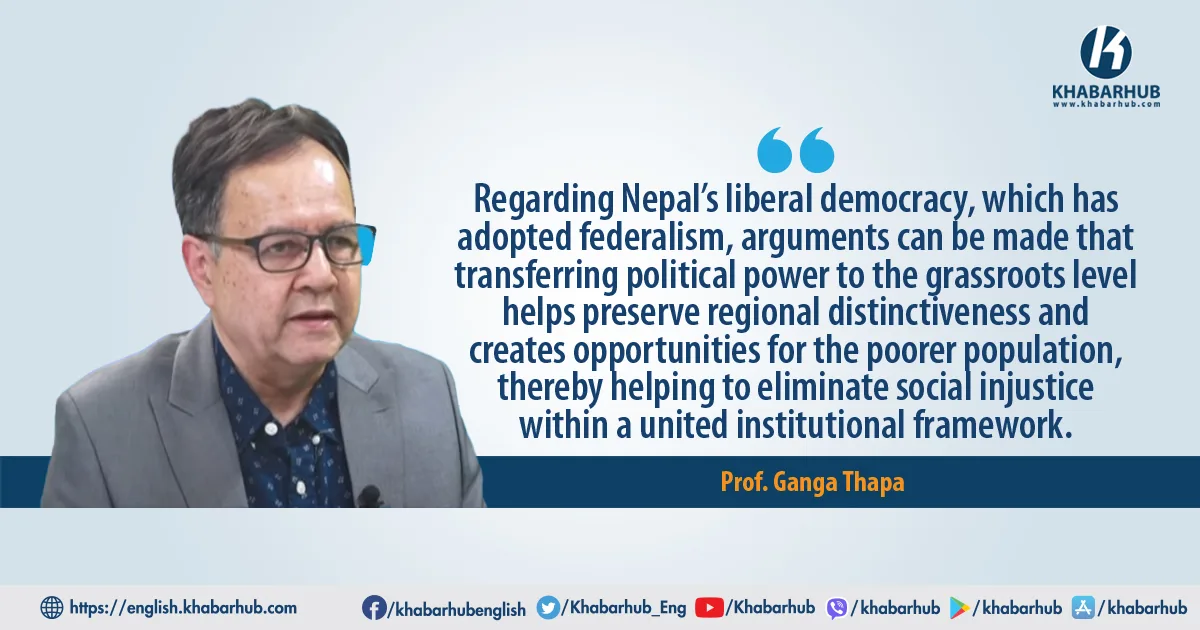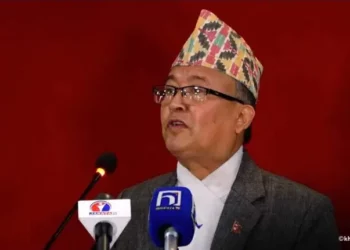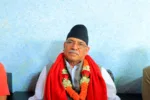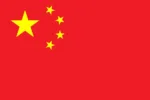Most politicians avoid uncomfortable truths. While Nepal is not a dictatorship or mafia state, its democracy is being weakened by waves of lies.
Politicians who rise to power on promises of change often lose popularity, and public faith in institutions declines, undermining both democracy and freedom.
Nepal finds itself in a paradoxical situation, with political debate muddied by populist left-right factions seizing state power and manipulating the state apparatus.
Currently, Nepal is dominated by five oligopolistic, corrupt criminals and wealthy plutocrats—Dahal, Deuba, Oli, Nepal, and Bhattarai.
These deluded individuals have no knowledge of innovation but control institutions and regard themselves as the ultimate authority.
They feel no remorse for devastating Nepal and have likely contributed to it becoming one of the planet’s poorest countries.
One barrier preventing citizens from rejecting these monstrous politicians and participating in democratic political life is the irreconcilable tendency within Nepali society.
We believe their habitual anarchist behavior will subside once key protagonists evolve logically and predictably, shifting their focus to politics.
There are signs of lost credibility and political power in many instances. Some expect a political metamorphosis from the collapse of politics, even if a political awakening occurs.
From a liberal democracy perspective, it seems evident that idealism is dead, mass murderers are celebrated, and democratic values are discarded.
People are beginning to believe that the rule of law and political institutions are merely paper tigers, with actual power vested in a small elite.
It appears this elite has no intention of creating equal status for the masses; their vision is deeply racist.
When democracy shrinks to being no more than a voting process, the destiny of a country becomes inseparable from its single ruler’s political existence, as Temelkuran (2019) writes in his book ‘How to Lose a Country.’
The lack of vision for an alternative and better future, combined with internal divisions, competition, and foreign activism, creates a situation we can call ‘panic politics,’ to quote Smith (2008: Group Politics and Social Movements).
With populism on the rise, politicians create contradictory and self-serving narratives, impossible political alliances across the political spectrum, and vulgar displays of corruption and inequality, eventually producing a massive political reaction and injustice.
Many Nepalis are cynical because they believe the political network works against their interests.
They attribute the nation’s dire situation entirely to these five individuals, who still mesmerize millions through their deceptive language. Nepal is heading toward improbable politics.
It is unsurprising that these individuals deceive most Nepalese, resulting in nationwide suffering. They are definitely less concerned with the masses.
We keep writing about it all the time. However, when vulgarity and ignorance become esteemed values, what do we do?
Should mass Nepalese become their slaves? This is dangerous. But the realpolitik of the day, on an intellectual level, genuinely believed that once oppressed real people were given their voice, they would become active agents of a liberal democracy.
Sustaining liberal democracy is a challenging task, and in the Nepali context, it seems as unlikely as winning a jackpot, especially when faced with the authoritarian tendencies of these five politicians.
They promise a new and more orderly system in their speeches but act to benefit themselves, their families, and their communities, rather than giving a chance to the general public.
They constantly manipulate institutions and consider themselves fundamental powers, taking the people for granted despite being known criminals.
Nepali democracy is disorienting, nauseating, and dangerous, raising critical questions about its future. We have almost reached the regrettable conclusion that stereotypes and individualism are so deeply ingrained in Nepali society that they seem immovable without sustained effort.
This entrenched mindset hinders citizens from rejecting corrupt politicians and fully participating in democratic life.
Due to various political events in Nepal, there have been waves of change. Differences in opinions among individuals are natural in a democracy. However, recent events have been far worse.
One barrier preventing citizens from rejecting these monstrous politicians and participating in democratic political life is the irreconcilable tendency within Nepali society.
Nevertheless, the legitimacy of institutions depends on the concept that all citizens are equal. There are no easy and concrete solutions to end this.
The challenge remains to foster a democratic culture where every citizen’s rights and responsibilities are recognized and upheld.
Regarding Nepal’s liberal democracy, which adopted federalism, arguments can be made that transferring political power to the grassroots level helps preserve regional distinctiveness and creates opportunities for the poorer population, helping to eliminate social injustice within a united institutional framework.
A basic factor leading to the adoption of federalism as a form of government was not because the country was difficult to govern but because embracing diversity and generating positive consensus is vital for the continued function of the liberal democracy Nepal adopted in 2015.
However, during the seven-year exercise of federal politics in Nepal, the provincial level of government has utterly failed to fulfill its role.
In a system of pure capitalism like Nepal’s, we must find a way to make the aspects of capitalism that serve wealthier people serve the poorer population as well, so it benefits everyone. Nepal needs to refine its system.
They have not effectively devolved power to accommodate linguistic, cultural, and economic diversity while addressing matters of common interest, resulting in zero contribution when measuring their performance. If this continues to be true, this level of federalism must be reconsidered or removed.
Due to various political events in Nepal, there have been waves of change. Differences in opinions among individuals are natural in a democracy. However, recent events have been far worse.
If Nepalis believe that under corrupt leaders like Prachanda, Deuba, Oli, Nepal, and Bhattarai, the country can achieve both social and economic transformations, leading to an improved quality of life, a prosperous future, or a better democracy, it is not blind optimism but rather informed optimism.
When discussing Nepal’s institutional development in democracy and republic, we must not forget another aspect: Nepal’s judiciary is captive to three elephantine political parties—Nepali Congress (NC), Unified Maoist and Leninist (UML), and Maoist Center (MC).
It’s futile for the court to play a judicial role. In this context, young politicians like Balen and Rabi, along with many others, need to critically engage and discard these five monstrous politicians.
As long as we are all governed under the same rule of law, they should express their unique talents and dreams in their own ways.
Finally, political systems of different types tend to attract specific personalities. Nepal’s democracy needs decent and civic-minded people to run it, not the power-hungry criminals mentioned earlier, who are more concerned about the next election than the next generation.
In a system of pure capitalism like Nepal’s, we must find a way to make the aspects of capitalism that serve wealthier people serve the poorer population as well, so it benefits everyone. Nepal needs to refine its system.









Comment